In the LCMS struggle with the choice governance structure, this essay supports the historical and Scriptural governance: Synod serves congregations.
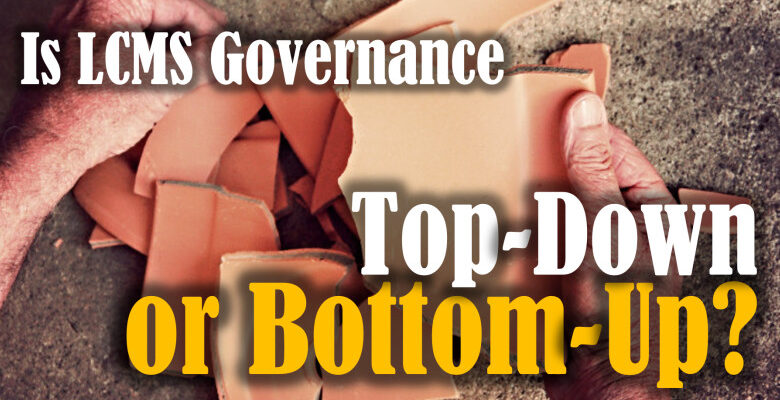

In the LCMS struggle with the choice governance structure, this essay supports the historical and Scriptural governance: Synod serves congregations.
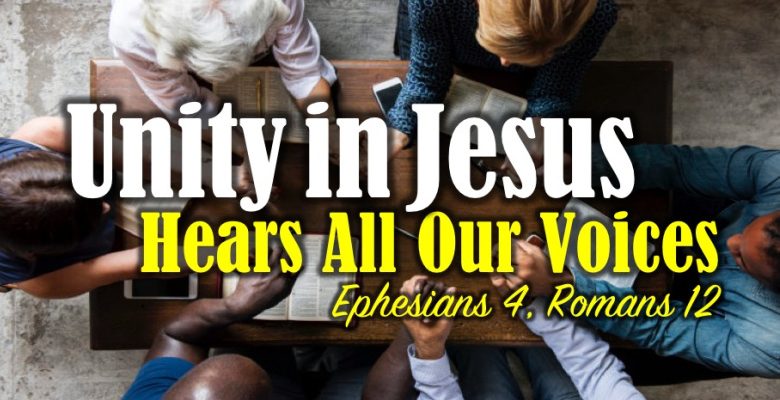
In his July 11th letter, Delegate Chuck Mueller, Jr., identifies a “drift” away from Synod’s constitutional Article III and Article VII work as the as the culprit bringing anger, apathy and a loss of support for our “covenant of love” in the LCMS. He calls for change and engagement of all voices of Synod as an answer. Read the entire letter and download Congregation’s Matter recommended list of Tampa candidates.
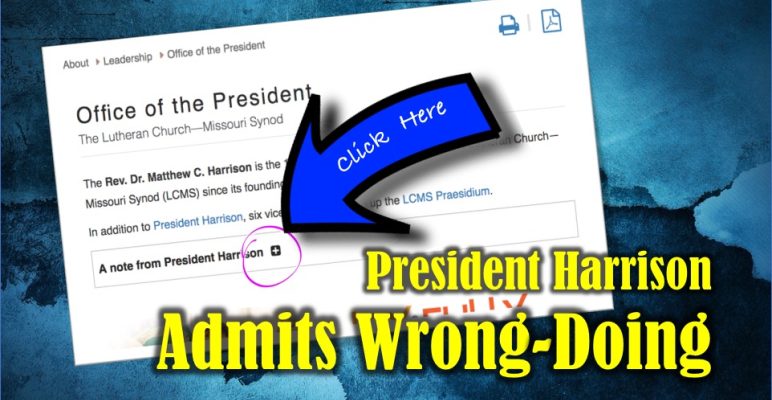
On late Friday afternoon, February 8, 2019, Matthew C. Harrison publicly admitted interfering in Synod’s Presidential nomination process. What did Harrison do wrong? He tainted Synod’s nomination process by giving wrong advice to pastors about who could nominate him, and he did so at Synod expense.

The History, Theology and Practice of Congregational Self-Governance in the LCMS In terms of governance and order, the Missouri Synod has throughout its history balanced power between the baptized and the ordained. We have made our decisions at conventions through votes mediated by an equal representation of clergy and laity. These votes were not to be viewed as mandates, but as carefully crafted and thoroughly dialogued advice. In a fun, tongue-in-cheek essay, the Editorial Staff of Congregations Matter has provided another brief history of the LCMS on one issue: Congregational Self-Governance as opposed to the current Synod trend towards hierarchialism. The essay reviews our history, theology, and the unfortunate, current tendency of our Synod to move from prizing the Priesthood of All Believers and Congregational Polity toward a foreign, non-Lutheran emphasis on maintaining and growing the structure itself and fulfilling its needs at the expense of the our “first love”:

In the past months, several District presidents wrote powerful pastoral letters in opposition to the recent Ecclesiastical Supervision contrived and enacted by the Harrison administration. Use these links to review each of their letters. Council of Presidents Chairman, Rev. Ken Hennings, President of the Texas District. Past Council of Presidents Chair, Rev. Larry Stoterau, Current President of the Pacific Southwest District Rev. John Denninger, President of the Southeastern District Other District Presidents have done the same. More and more LCMS leaders are voicing their opposition to the unconstitutional change to Bylaw 2.14. President Harrison sought this power. But Harrison couldn’t do it alone. With the support of the United List majority of the Synod Board of Directors (BOD), President Harrison and Secretary Sias bypassed the Council of Presidents and the expressed will of the Milwaukee Synodical convention.

Last summer, District President (DP) Larry Stoterau of the Pacific Southwest District wrote a powerful pastoral letter in opposition to the recent Ecclesiastical Supervision bylaw change. You can download a copy of it here. Several District Presidents have addressed their concern with the centralization of control in the Synodical President’s office, especially as it relates to the recent changes in the area of ecclesiastical supervision. Pacific Southwest District President Larry Stoterau’s letter to his District clearly outlines their cause for concern. IT IS TIME TO ACT More and more LCMS leaders are voicing their opposition to the unconstitutional change to Bylaw 2.14. First, Council of Presidents Chair, Texas DP Hennings stood his ground against this dangerous development in Synod. DP Hennings was voted by a majority of the Council of 35 District Presidents, the Synodical President and the Regional Vice Presidents as their trusted leader. You can read the Congregations Matter article

With a letter to the congregations and rostered members of his district, District President (DP) John Denninger of the Southeastern District joined the growing number of LCMS leaders voicing their opposition to recent and unconstitutional bylaw changes giving final ecclesiastical supervision to President Harrison. At President Harrison’s request and Secretary Sias’ hand, the United List majority of the Synod Board of Directors (BOD) wrested the constitutional, historic responsibility of ecclesiastical supervision from District Presidents. Without vote or action of the Milwaukee Convention, the BOD gave this responsibility to one man. The President of Synod now is the de facto ecclesiastical supervisor of the LCMS. Harrison has taken ecclesiastical supervisory decisions away from our 35 District Presidents. He relocated those life-changing decisions to his own desk inside the secretive International Center in St. Louis. Wrested Power Over Congregations First, Council of Presidents Chair, Texas DP Hennings stood his ground against this dangerous

Last Friday District President (DP) Ken Hennings sent an unprecedented, public letter to the rostered members of his district. The letter explains the drastic change that the United List majority of the Synod Board of Directors adopted in May regarding ecclesiastical supervision. But Hennings did more. The letter explains why District Presidents in Synod are no longer the final ecclesiastical supervisors of churches, pastors, teachers, DCEs and other church workers. Our new, changed reality? Synod President Harrison has taken that job for himself. District President Hennings clearly warns of the consequence this bylaw change brings: “It is necessary that I personally make you aware of the significant changes to the process of ecclesiastical supervision in our church body. The board of directors of the Synod has adopted bylaw changes that give the ultimate responsibility for your (and your congregation’s) ecclesiastical supervision to the President of the Synod. In other words, if
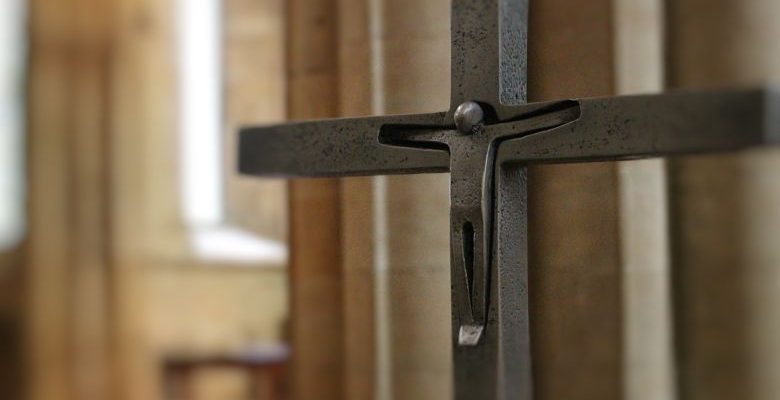
“Among You It Will Be Different” It was a simple request. A mother asking for positions of power and influence for her sons. Then it all broke loose. “You don’t know what you are asking,” Jesus said. The other disciples became indignant with James and John. And the Master settles the issue with these words: 25 But Jesus called them together and said, “You know that the rulers in this world lord it over their people, and officials flaunt their authority over those under them. 26 But among you it will be different. Whoever wants to be a leader among you must be your servant, 27 and whoever wants to be first among you must become your slave. 28 For even the Son of Man came not to be served but to serve others and to give his life as a ransom for many.” Matthew 20:25-28 (NLT) Jesus does not need political posturing. He needs
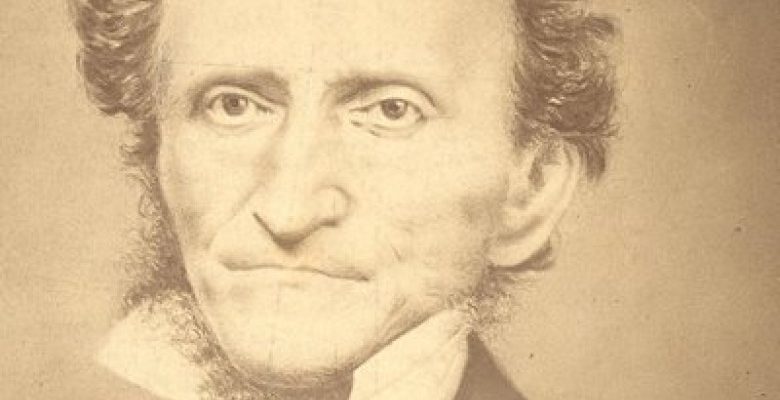
We all expect, even demand our “rights” – right to life, liberty, civil rights, human rights, women’s rights, rights of the unborn. As Americans, we have a “Bill of Rights.” As followers of Jesus and members of the LCMS, we have rights within our Synod. That is, until someone tries to take them away. “The Congregation’s Rights” in the Lutheran Church – Missouri Synod also demands our attention. Our Synod has a history of drifting away from our foundations, a tendency in our history to lift up the human organization of Synod, or the clergy, or Synod leadership above the congregation. Sometimes there’s a group – or an individual – pushing us down that road away from an advisory Synod. It is happening now. We need to push back. Executive Summary Before the Synod was formed in 1847, the Saxon immigrants under Pastor (later “Bishop”) Martin Stephan had a polity in